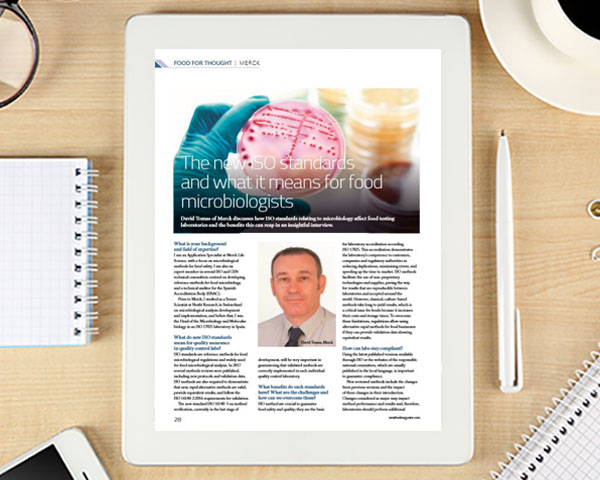Food For Thought: The new ISO standards and what it means for food microbiologists
- Like
- Digg
- Del
- Tumblr
- VKontakte
- Buffer
- Love This
- Odnoklassniki
- Meneame
- Blogger
- Amazon
- Yahoo Mail
- Gmail
- AOL
- Newsvine
- HackerNews
- Evernote
- MySpace
- Mail.ru
- Viadeo
- Line
- Comments
- Yummly
- SMS
- Viber
- Telegram
- Subscribe
- Skype
- Facebook Messenger
- Kakao
- LiveJournal
- Yammer
- Edgar
- Fintel
- Mix
- Instapaper
- Copy Link
Posted: 20 August 2020 | Merck | No comments yet
David Tomas of Merck discusses how ISO standards relating to microbiology affect food testing laboratories and the benefits this can reap in an insightful interview.


What is your background and field of expertise?
I am an Application Specialist at Merck Life Science, with a focus on microbiological methods for food safety. I am also an expert member in several ISO and CEN technical committees centred on developing reference methods for food microbiology, and a technical auditor for the Spanish Accreditation Body (ENAC). Prior to Merck, I worked as a Senior Scientist at Nestlé Research in Switzerland on microbiological analysis development and implementation, and before that, I was the Head of the Microbiology and Molecular biology in an ISO 17025 laboratory in Spain.








